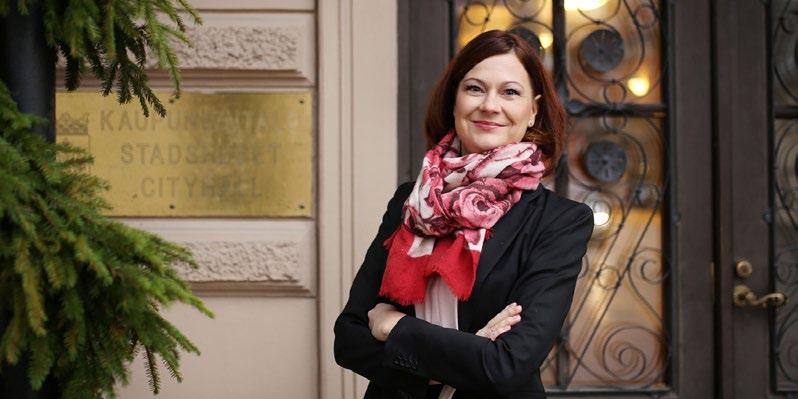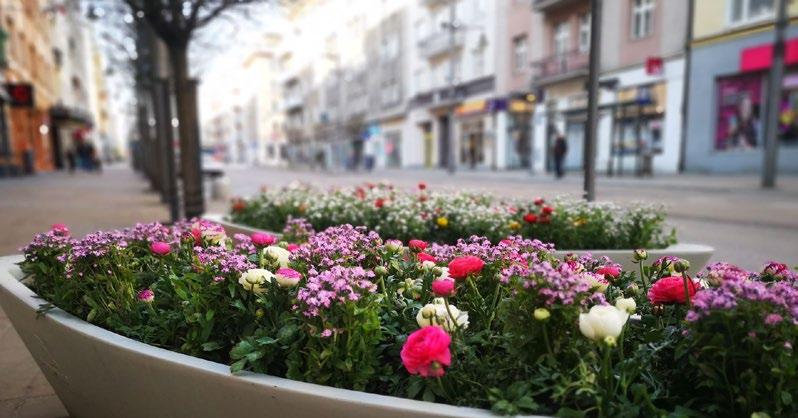IN GDYNIA ECOLOGICAL AWARENESS IS SHAPED EFFECTIVELY Gdynia, a city of the sea and dreams, perfectly developed in terms of urban planning, with plenty of green areas, with a very high quality of life, whose greatest potential are its creative inhabitants that consciously act in response to current and future global challenges. It all started with the educational policy consistently implemented by the local government of Gdynia, aimed at increasing the level of knowledge and awareness of environmental issues as well as encouraging residents to change their attitudes and habits. The effects of this policy have already been visible for many years – students of Gdynia schools are actively involved in the implementation of innovative activities focusing on ecology and climate, which they often initiate themselves. ”Today no one in Gdynia has any doubts that the environment requires special care and attention of all inhabitants of our city. I am glad that there are many possibilities for the inhabitants to actively participate in activities or projects for the benefit of the environment and shaping the ecological awareness. It would be impossible to describe here all such initiatives. We are currently developing an interesting vertical garden inside the building of the Refrigeration Engineering and Electronics School Complex, and we are also waiting for the outcome of the competition for co-financing the climate neutrality project within the EEA & Norway Grants. These are the next innovative undertakings on the city level, which are the answer to pressing ecological needs” says Bartosz Bartoszewicz, Deputy Mayor of Gdynia for Life Quality.
The School Complex students themselves are deeply involved in the creation of the vertical garden inside the school building. They will design it from scratch and then build it with the support of specialists. The school corridor, where the garden will be created, will be painted with an innovative air-purifying paint. Outside the school building, a secret garden will be created with a unique relaxation area filled with blooming flowers, bushes and various trees. Other elements of this space, such as benches, will also be partly prepared by the students during school workshops. And this is not all, because as part of the project, a series of interesting classes will also be held to introduce the idea of sustainable development in schools, promoting pro-ecological attitudes. The whole school community and pupils from neighbouring primary schools will take part in those. Among other things, there will be talks about photovoltaic panels, wind generators and the effects of thermal insulation and, what is important, the workshops for the youth will be run by the youth. The project will continue until the end of 2021, and the City of Gdynia has been implementing it in cooperation with the Knowledge and Competence Institute. Moreover, students and teachers of Primary School No. 34 are preparing to start a new project, thanks to which they will be widely informing about climate changes and their consequences. They have planned some very interesting activities for pupils, including field lessons, competitions and climate conferences. The local community will also be educated – seminars, discussion panels and a festival will be organised for the public. Meanwhile, mitigation and adaptation investments will take place on the school grounds, thanks to which the green areas will increase and small retention will develop. The icing on the cake will be the creation of an e-book – a material with lots of educational and informational advice for residents on how to mitigate the effects of climate changes.
by Aneta Grygiel-Dorszewska| a.grygiel-dorszewska@gdynia.pl
35 35

































